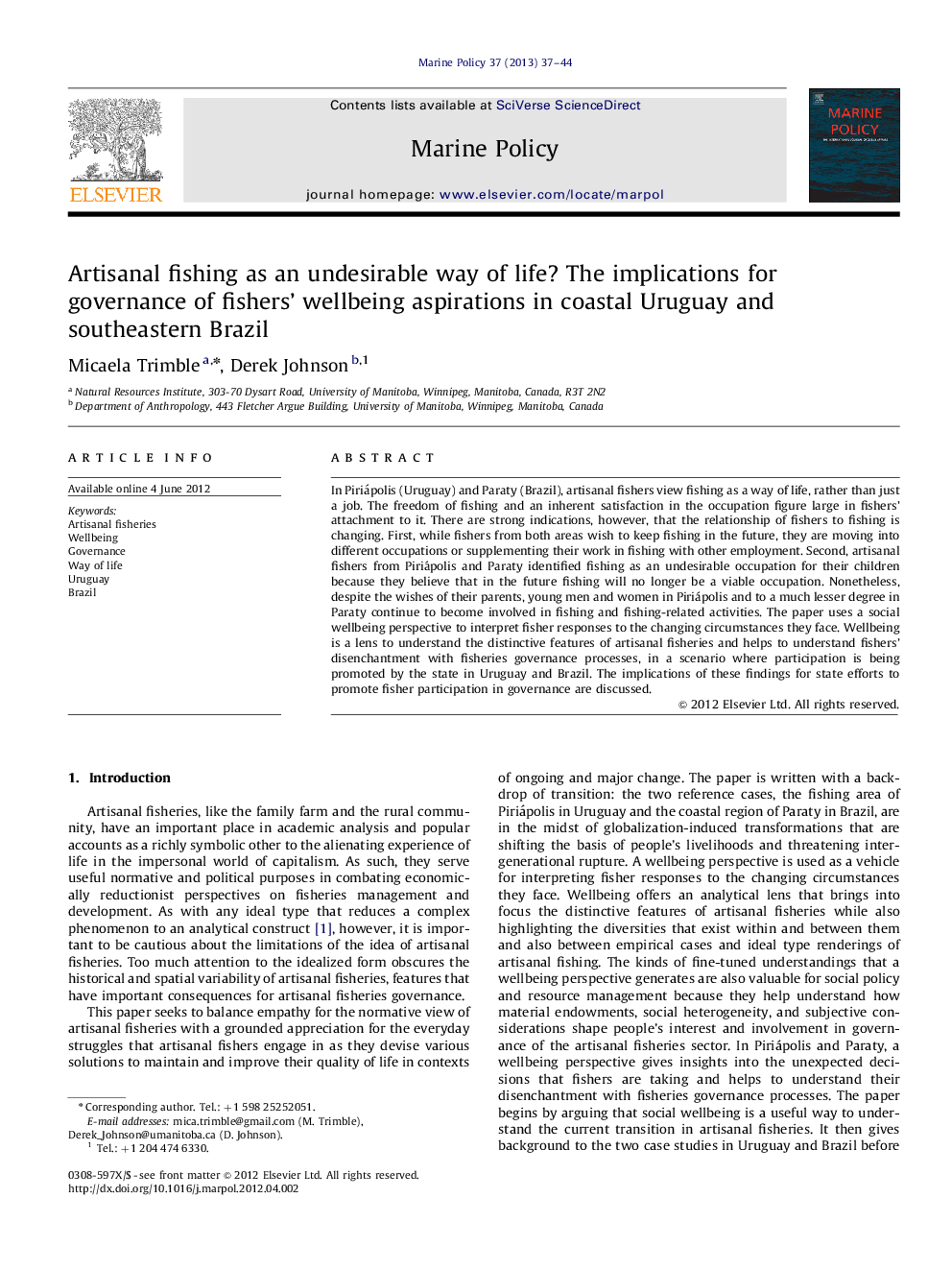| کد مقاله | کد نشریه | سال انتشار | مقاله انگلیسی | نسخه تمام متن |
|---|---|---|---|---|
| 1060584 | 1485542 | 2013 | 8 صفحه PDF | دانلود رایگان |

In Piriápolis (Uruguay) and Paraty (Brazil), artisanal fishers view fishing as a way of life, rather than just a job. The freedom of fishing and an inherent satisfaction in the occupation figure large in fishers' attachment to it. There are strong indications, however, that the relationship of fishers to fishing is changing. First, while fishers from both areas wish to keep fishing in the future, they are moving into different occupations or supplementing their work in fishing with other employment. Second, artisanal fishers from Piriápolis and Paraty identified fishing as an undesirable occupation for their children because they believe that in the future fishing will no longer be a viable occupation. Nonetheless, despite the wishes of their parents, young men and women in Piriápolis and to a much lesser degree in Paraty continue to become involved in fishing and fishing-related activities. The paper uses a social wellbeing perspective to interpret fisher responses to the changing circumstances they face. Wellbeing is a lens to understand the distinctive features of artisanal fisheries and helps to understand fishers' disenchantment with fisheries governance processes, in a scenario where participation is being promoted by the state in Uruguay and Brazil. The implications of these findings for state efforts to promote fisher participation in governance are discussed.
► Artisanal fishers from Piriápolis and Paraty perceive fishing as a way of life rather than just a job.
► Fishers' livelihoods are in transition as fishing is no longer sufficient to make a full living.
► Fishers see fishing as an undesirable occupation for their children.
► Social wellbeing is valuable for understanding the current transition in artisanal fisheries.
► Fisheries agencies need to work harder to make artisanal fishers feel valued partners in governance.
Journal: Marine Policy - Volume 37, January 2013, Pages 37–44